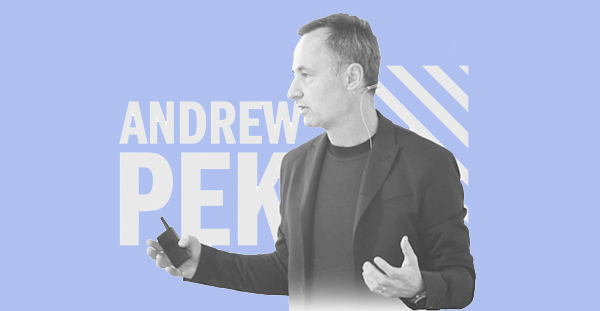
Dr. Relly Nadler: Our guest on Leadership Development News is Andrew Pek. He’s a Master Consultant, Advisor, and Professor. Andrew offers powerful, tell it like it is, online programs to share a lifetime of strategies plus tricks of the trade on how to become the most effective consultant from his world-renowned experience as a creative, a designer, and an innovator. He’ll talk about the superpowers of the “unplugged consultant” with all the tips, tools, and techniques that you’ll need to become the ultimate trusted advisor.
Dr. Cathy Greenberg: First of all, I am very excited to have Andrew with us. Andrew Pek is a long-time consulting associate. We worked together globally at a little company called Accenture some time ago. We both evolved into obviously very different careers and new directions. Andrew is going to talk, today, about the superpowers of a consultant. He does that through his new podcast called Unplugged, Consulting Unplugged.
Andrew has also created an entire curriculum that helps people really ramp up their consulting, become professional advisors, and change agents.
Dr. Relly Nadler: Andrew, welcome to the show.
Andrew Pek: It’s great to be on. Thanks for having me.
Dr. Relly Nadler: Can you say a little bit about your background and I know you have a podcast also. So, give us a little bit of the background about yourself and maybe around some of the people who have influenced you the most.
Andrew Pek: Sure, I’d love to.
I am described as a died-in-the-wool business and change consultant. Although I started my career in corporate life working in various strategy and marketing roles. As Cathy mentioned, she and I had the opportunity to work together at Accenture, where I cut my teeth in professional advisory services, working with a large global entity helping top CEOs and executives effect change and transform their organizations to be more competitive, of course, and more engaged workforce.
I have run my own firm for 14 plus years, specialized in two primary areas; Design thinking, design management as well as innovations. Helping companies to drive more breakthrough products and services and experiences for their customers.
I’ve dedicated myself to really advising top organizations to become more innovative, always focusing heavily on the human element of it because, after all, the products and services that we design are for people in mind, so you want to take that into consideration using various empathic approaches.
That’s a little bit about me and in between all of that I have a gorgeous family. I live in New York, most of the time. I have a beach house also that I every now and then retreat to, although, unfortunately, due to the circumstances have been a bit sequestered but I’m blessed and delighted to serve.
Dr. Relly Nadler: So, tell us a little bit about if you are in New York now. What are some of the main emotions of the people around you?
Andrew Pek: Sure.
Obviously, and reported heavily on the news today, we are at the epicenter in some respects no surprise because we are a gateway to the United States from, certainly from Europe and it’s a densely populated area. Not just Manhattan but all the boroughs.
There are a lot of people, it’s a hustle and bustle kind of community, really driving commerce and interaction and, of course, entertainment.
Of course, now, with the circumstances, it is almost surreal how such a densely populated, active, metropolitan area has almost, to some extent, gone silent.
Under normal circumstances, and I read this recently, there is this concept called presence disparity. For many people who work virtually, who are already used to that, they have to learn to or create in clever ways to make an impact through online or virtual ways and develop ways to exhibit and express themselves, to be heard. Have a voice.
So, now, when you think about it. What has happened, almost universally – I don’t know the exact percentages, but I’ve got to guess 60-70% of the population now – in the metropolitan area is suffering from that presence disparity in some respect.
How do they engage with each other and still have a voice, they have a contribution and connect with one another given the circumstances on how isolated we have become during this moment in time?
I think it is more important than ever to come up with creative solutions that keep us engaged, keep us contributing, and keep us safe all at the same time.
Listen to the entire interview, above.
Relly

